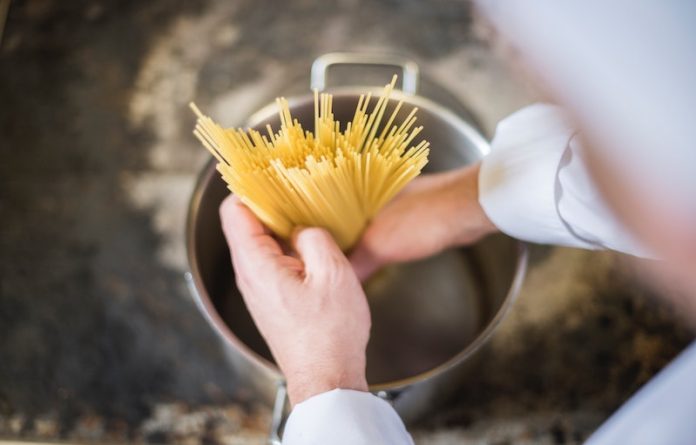
Iodine is a vital nutrient that helps to keep the thyroid gland functioning properly. In many countries, people get enough iodine in their diet through iodized salt, which is salt that has had iodine added to it.
Iodized salt has been proven to prevent iodine-deficiency disorders, such as goiters and certain birth defects.
However, it’s not clear how iodized salt interacts with chloramine-treated water, which is a common disinfectant used in drinking water.
When water is treated with chlorine or chloramine, small amounts of these disinfectants can end up in the water that is used for cooking.
Previous studies showed that when wheat flour was heated in tap water that contained residual chlorine and seasoned with iodized table salt, potentially harmful iodinated disinfection byproducts could form.
The current study aimed to examine the impact of chloramine-treated water on real foods and at-home cooking conditions.
Researchers at the University of South Carolina cooked elbow macaroni in tap water that had been treated with chloramine and iodized table salt.
They boiled the pasta according to the package directions, and also tested different cooking conditions and types of salt.
The team then measured the amounts of six iodinated trihalomethanes, which are potentially toxic compounds, in the cooked food and pasta water.
The researchers found that all six iodinated trihalomethanes were present in the cooked noodles and pasta water.
However, the amount of these potentially harmful compounds was strongly impacted by cooking conditions and salt type.
Specifically, boiling pasta without a lid allowed vaporized chlorinated and iodinated compounds to escape, while straining noodles removed most of the contaminants.
Adding iodized salt after cooking reduced the risk of byproduct formation, but non-iodized salt options like kosher or Himalayan salt are recommended if salted water is desired.
Based on their results, the researchers suggest four ways to reduce or avoid the formation of disinfection byproducts when cooking pasta in chloramine-treated water with iodized salt:
Boil pasta without a lid to allow vaporized chlorinated and iodinated compounds to escape.
Strain noodles from the water that they’re cooked in to remove most of the contaminants.
Add iodized salt after cooking to reduce the risk of byproduct formation.
Use non-iodized salt options like kosher or Himalayan salt if salted water is desired.
They say by following these simple steps, home cooks can help reduce their exposure to potentially harmful compounds while still enjoying their favorite pasta dishes.
If you care about nutrition, please read studies about how Mediterranean diet could protect your brain health, and this plant nutrient could help reduce high blood pressure.
For more information about nutrition, please see recent studies about natural coconut sugar that could help reduce blood pressure and artery stiffness, and anti-inflammatory diet could help prevent fatty liver disease.
The study was conducted by Huiyu Dong et al and published in Environmental Science & Technology.
Copyright © 2023 Knowridge Science Report. All rights reserved.



